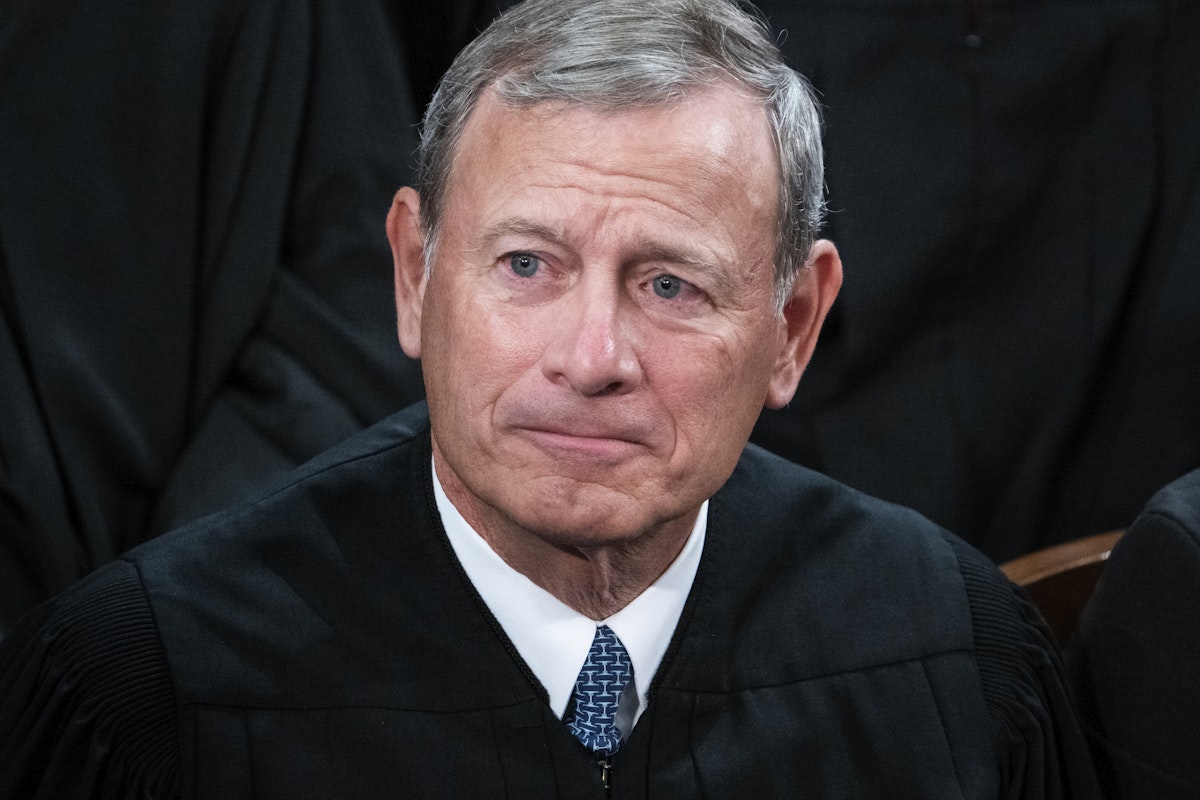Supreme Court Immunity Ruling Destroys Independent Justice Department
The Justice Department will no longer be an independent authority on the law, thanks to the Supreme Court’s ruling on Donald Trump’s immunity case Monday. Instead, it will be an arm to be leveraged by the Oval Office, with open communication enabled between the federal law enforcement agency and the presidency for all future investigations.Chief Justice John Roberts slipped the allowance into his majority opinion, as the justices ruled 6–3 in Trump’s favor along ideological lines. In a quiet sentence, Roberts argued that the fresh take on the executive branch relationship would help the president carry out his constitutional duties.“The president may discuss potential investigations and prosecutions with his Attorney General and other Justice Department officials to carry out his constitutional duty to ‘take care that the laws be faithfully executed,’” Roberts wrote.“And the Attorney General, as head of the Justice Department, acts as the President’s ‘chief law enforcement officer’ who ‘provides vital assistance to [him] in the performance of [his] constitutional duty to ‘preserve, protect, and defend the Constitution,’” Roberts continued, citing a precedent from an immunity case argued for Cabinet members, Mitchell v. Forsyth.This means that if Trump returns to office, he will have free rein to wield the Justice Department as he sees fit—and he and his allies have already given plenty of indications as to what they plan to do.The decision from the conservative majority overturned a federal appeals court ruling that had unanimously rejected all three of Trump’s presidential immunity arguments in his January 6 case, “patiently, painstakingly, and unsparingly” dismantling his arguments in an “airtight” opinion, according to George Conway, a conservative attorney and ex-husband of former Trump adviser Kellyanne Conway.Monday’s ruling has effectively killed the January 6 trial, which would have been overseen by U.S. District Judge Tanya Chutkan.

The Justice Department will no longer be an independent authority on the law, thanks to the Supreme Court’s ruling on Donald Trump’s immunity case Monday. Instead, it will be an arm to be leveraged by the Oval Office, with open communication enabled between the federal law enforcement agency and the presidency for all future investigations.
Chief Justice John Roberts slipped the allowance into his majority opinion, as the justices ruled 6–3 in Trump’s favor along ideological lines. In a quiet sentence, Roberts argued that the fresh take on the executive branch relationship would help the president carry out his constitutional duties.
“The president may discuss potential investigations and prosecutions with his Attorney General and other Justice Department officials to carry out his constitutional duty to ‘take care that the laws be faithfully executed,’” Roberts wrote.
“And the Attorney General, as head of the Justice Department, acts as the President’s ‘chief law enforcement officer’ who ‘provides vital assistance to [him] in the performance of [his] constitutional duty to ‘preserve, protect, and defend the Constitution,’” Roberts continued, citing a precedent from an immunity case argued for Cabinet members, Mitchell v. Forsyth.
This means that if Trump returns to office, he will have free rein to wield the Justice Department as he sees fit—and he and his allies have already given plenty of indications as to what they plan to do.
The decision from the conservative majority overturned a federal appeals court ruling that had unanimously rejected all three of Trump’s presidential immunity arguments in his January 6 case, “patiently, painstakingly, and unsparingly” dismantling his arguments in an “airtight” opinion, according to George Conway, a conservative attorney and ex-husband of former Trump adviser Kellyanne Conway.
Monday’s ruling has effectively killed the January 6 trial, which would have been overseen by U.S. District Judge Tanya Chutkan.



